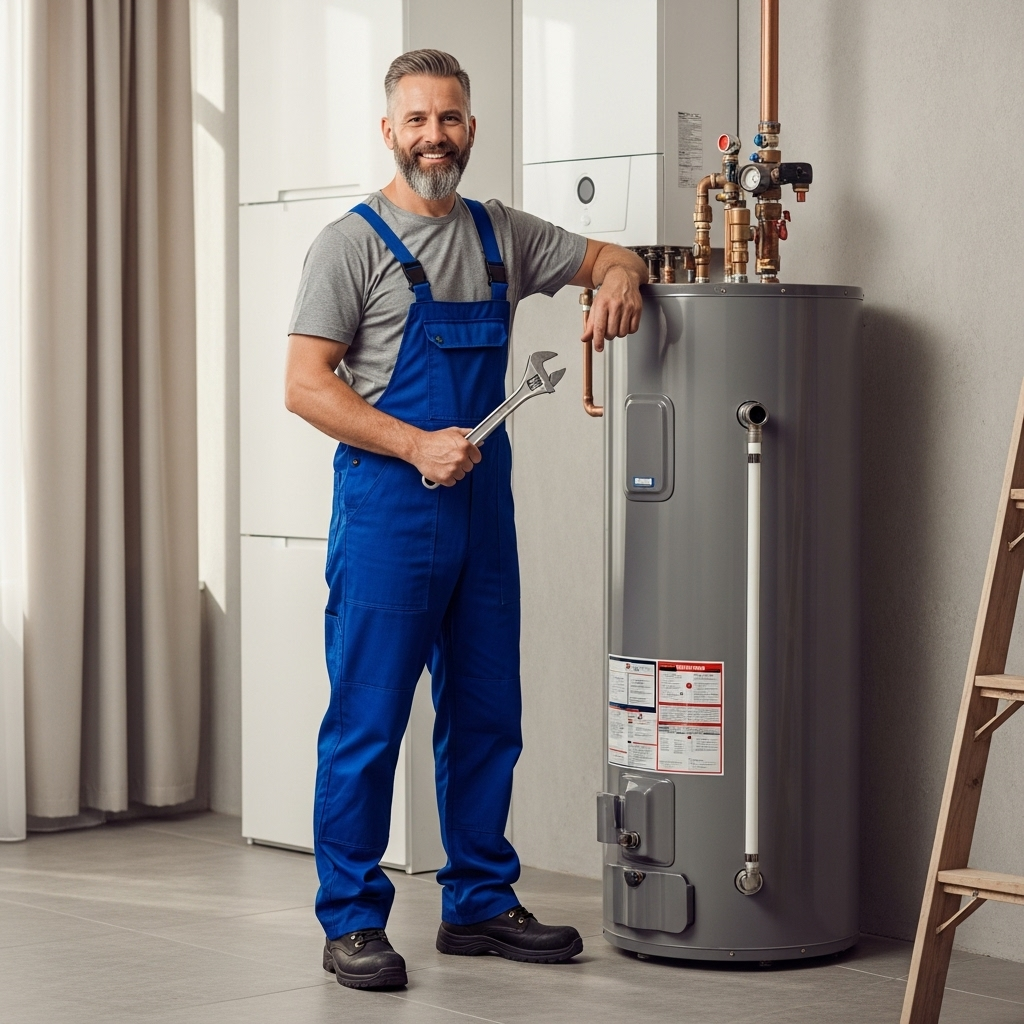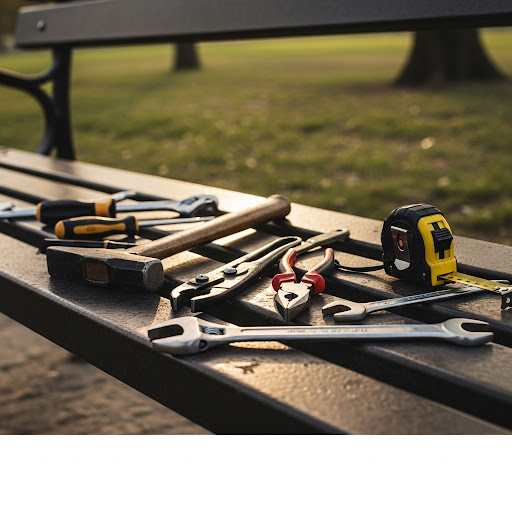DIY Plumbing vs. Professional Plumber: When to Call the Pros

As an Englewood, Colorado homeowner, you might feel ready to grab a wrench and tackle a dripping faucet or a slow drain. That's a great instinct; small fixes can save you money and build confidence. But as a licensed plumber who's worked with Colorado homeowners for years, and often serves as your residential plumber for water heater needs, I've seen how quickly a "simple" job can turn into a costly mess. Englewood's hard water, aging pipes, and freeze-thaw cycles don't play nicely with amateur repairs. This guide will walk you through when to DIY, when to call a pro, and how to spot trouble before it floods your basement. My goal? To help you make smart choices without judgment, just practical advice.
Why Plumbing Decisions Matter
Plumbing isn’t just about stopping leaks, it’s about keeping your home safe, efficient, and up to code. A small error, like overtightening a fitting or missing a hidden issue, can lead to water damage, mold, or even health risks like gas leaks. In Englewood, where winter freezes can crack pipes and hard water clog fixtures, knowing your limits is crucial. Let’s dive into what you can handle and when partnering with a professional plumbing company is the better call.
DIY Plumbing: What You Can Handle

With basic tools and a bit of know-how, you can tackle some plumbing tasks safely. Here are a few that are usually DIY-friendly:
1. Clogged Toilet Fix
A clogged toilet is frustrating but often fixable. Grab a flange plunger (not a cup plunger) for better suction and work it steadily to clear the blockage. If that doesn’t work, a toilet auger can snake out deeper clogs. Tip: Skip chemical drain cleaners, they can corrode pipes and rarely solve tough blockages.
2. Running Toilet Repair
A toilet that keeps running usually has a worn flapper or faulty fill valve. You can buy a replacement kit at any hardware store. Turn off the water, drain the tank, and follow the kit’s instructions. Tip: Test for leaks by adding food coloring to the tank, if color seeps into the bowl, the flapper isn’t sealing.
3. Minor Leaking Pipes
A small drip under a sink might just need a tightened connection or a new washer. Shut off the water supply, disassemble the joint, and replace any worn parts. Tip: Keep a bucket handy for drips, and don’t overtighten, snug is enough to avoid cracking fittings.
4. Low Water Pressure Causes
If one faucet has weak flow, the aerator might be clogged with sediment, a common issue with Englewood’s hard water. Unscrew the aerator, soak it in vinegar, and scrub away the buildup. Tip: Soak overnight for stubborn deposits, and check the shut-off valve is fully open.
These jobs are manageable if you’re comfortable with tools and follow instructions. But if the problem persists or feels out of your depth, it’s time to stop and call a pro.
When to Call a Professional Plumber
Some plumbing issues are too risky, complex, or tied to local codes for DIY. I’ve been called to fix plenty of well-intentioned homeowner attempts that went sideways. Here’s when to pick up the phone:
1. Sewer Line Repair or Sewer Backup
Sewer backups, think gurgling drains, slow flushing, or sewage smells, are serious. Tree roots, grease, or collapsed pipes often cause them, and they require tools like cameras and hydro-jets to diagnose and fix. DIY attempts can damage pipes further or violate Englewood’s plumbing codes.
2. Gas Leak Detection
If you smell rotten eggs or hear hissing near gas lines, leave immediately and call a licensed plumber. Gas leaks are life-threatening, and only pros with specialized equipment can handle them safely. Never try this yourself.
3. Burst Pipe Repair
Colorado’s freeze-thaw cycles can split pipes, especially in older homes. A burst pipe can flood your house in minutes. If you spot water gushing or damp walls, shut off the main water valve and call a plumber to repair or replace the pipe. Tip: Insulate exposed pipes in the fall to prevent freezing.
4. Water Heater Issues or No Hot Water Troubleshooting
No hot water? Leaking tank? Call your residential plumber for water heater needs. Water heaters involve high-pressure systems, gas lines, or electrical components that can be dangerous. A pro can check for sediment buildup, faulty thermostats, or the need for a new unit.
5. Plumbing Leak Detection
Hidden leaks behind walls or under floors can cause mold or structural damage. Signs include damp spots, musty smells, or spiking water bills. Professionals use tools like moisture meters and infrared cameras to pinpoint leaks without tearing up your home.
6. Professional Drain Cleaning
Recurring or multi-drain clogs often point to deeper issues in your main line. Pros use high-pressure jets or snakes to clear blockages safely. DIY drain snakes can get stuck or push debris further down, making things worse.
7. Plumbing Inspection for Major Projects
Planning a remodel or suspecting aging pipes? A professional plumbing inspection can spot issues like corrosion or code violations. In Englewood, where hard water accelerates pipe wear, this can save you from future headaches.
Plumbing Safety Tips
Whether you’re DIYing or waiting for a pro, keep these in mind:
- Turn off the water: Always locate and shut off the water supply before starting any repair.
- Know your limits: If a job involves gas, electricity, or major pipes, step back.
- Check local codes: Englewood has strict plumbing regulations, especially for sewer and gas work.
- Use the right tools: A cheap wrench can strip fittings, causing leaks.
- Watch for warning signs: Slow drains, odd noises, or rising water bills mean it’s time for plumbing troubleshooting.
Plumbing Troubleshooting: Signs You Need a Plumber
Not sure if it’s a DIY job or time to call? Watch for these red flags:
- Water stains or soft spots on walls or ceilings (possible hidden leaks).
- Sewage odors or gurgling from multiple drains (sewer backup risk).
- No hot water or strange noises from your water heater.
- Sudden drops in water pressure across the house.
- Any sign of a gas leak, smell, sound, or dizziness.
If you spot these, don’t wait. A quick call can prevent a small issue from becoming a major repair.
Final Thoughts
As a homeowner, it’s empowering to fix minor plumbing issues like a clogged toilet or dripping faucet. But Englewood’s unique challenges, hard water, freezing winters, and aging pipes, mean some jobs are best left to pros. By knowing when to DIY and when to call a licensed plumber, you’ll save money, avoid stress, and keep your home safe. If you’re ever in doubt, reach out to a professional for advice or a quick inspection. It’s better to spend a little now than a lot later.







